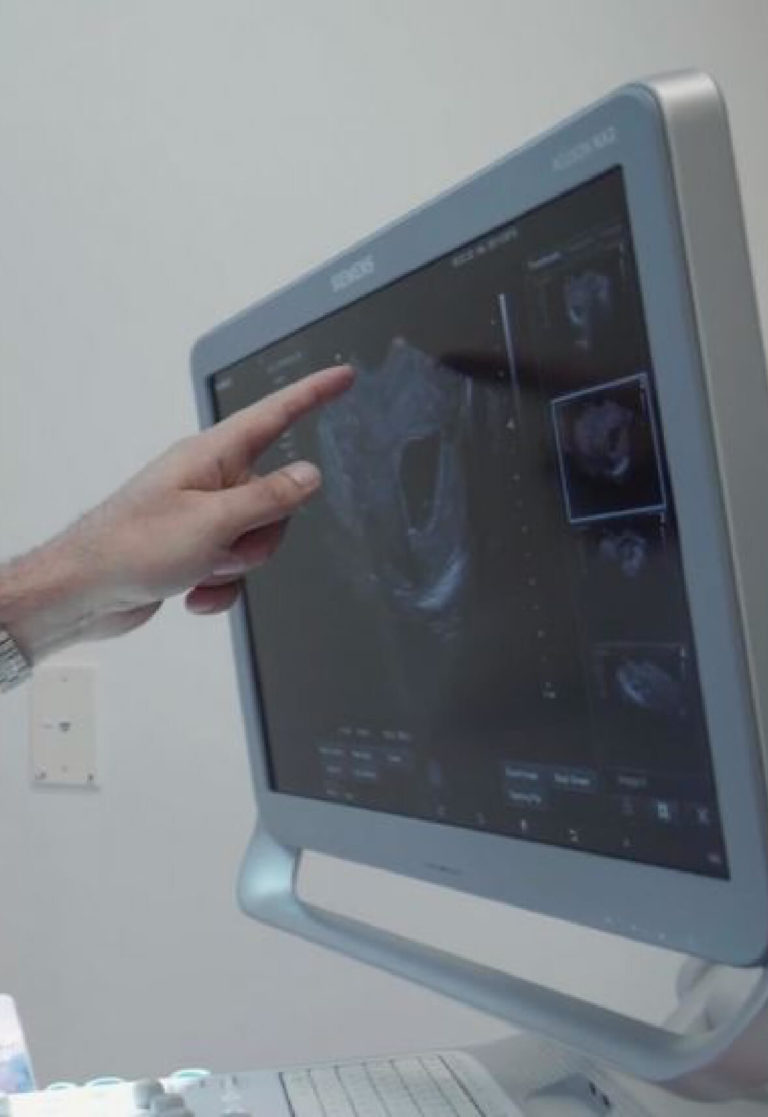What is Infertility?
Diagnostic Testing and Evaluation at RHWC
Not sure about your results?
Get a 2nd opinion from our fertility experts today
Being on the forefront of science and technology is a critical part of fertility care. Our brand new, state-of-the-art laboratories are fully equipped to execute all of the required tests and services to give you the very best options and opportunities for a healthy pregnancy.
When we begin our work together, we assess all areas of your health (and your partner’s) to evaluate any potential causes of your infertility. Based on the findings in these assessments, diagnostic testing will be performed.
Do I Have to Wait a Year Before Being Tested?
Popular Questions Answered

Definitely not. Because age can affect a woman’s fertility, women age 35 or older should consider fertility testing if they are unable to become pregnant after six months of trying. Woman who are 40 and older should consider being seen even after just a few months of trying.
Other Reasons to See a Fertility Doctor Sooner than a Year
- Irregular menstrual cycles
- You want to be seen
- Recurrent pregnancy loss
- Family balancing (gender selection)
- Preimplantation Genetic Testing for inheritable genetic diseases
- Having a pre-existing infertility
- endometriosis
- history of pelvic injection
- damaged fallopian tubes
- diminished ovarian reserve (lower egg count)
- known male factor (low sperm counts)
- no male partner
Fertility Test for
Women

Medical History Assessment
Prenetal Tests
Other hormones are also important to evaluate because they too can affect your fertility. For example, the fertility doctor will want to make sure your thyroid is working well, and that your prolactin levels are normal. They will also want to make sure you are well and healthy and don’t have issues with anemia, diabetes, or vitamin D deficiency.
Sonogram (Ultrasound)
On the third day of your menstrual cycle, the fertility doctor will perform a transvaginal ultrasound to get a closer look at your uterus and ovaries. The pelvic ultrasound can diagnose such problems as an abnormally shaped uterus or cysts in the ovaries and can be used to do an antral follicle count (a count of the number of follicles in your ovaries that month).
Sonohysterogram
A sonohysterogram, or saline infusion sonogram, uses saline to fill the uterine cavity while looking at the uterus with a transvaginal ultrasound. This procedure helps diagnose irregular growths like fibroids or polyps which can affect the ability of the embryo to implant and grow.
Ovarian Reserve Tests
Blood tests are done on the third day of your menstrual cycle to assess where you are with your ovaries. The third day is important because this is when your ovaries are at baseline. As you go through your menstrual cycle, your hormones go up and down and up and down again, so the third day allows the fertility specialist to really interpret what is going on. We will evaluate your FSH (follicle-stimulating hormone), your Estradiol, and your AMH (anti-Müllerian hormone).
Hysterosalpingogram
A hysterosalpingogram is a procedure using an X-ray image of a woman’s fallopian tubes and uterus. The fertility specialist will insert a catheter (small tube) containing dye into the cervix that will help the structure of the uterus and fallopian tubes show up on the X-ray. This procedure can help determine if your fallopian tubes are open or blocked. It can also assess your uterine cavity for polyps and fibroids, or for an abnormal shape.
Fertility Test for
Men

At Reproductive Health and Wellness Center, the following tests for male infertility are performed by the fertility doctor:
Semen Analysis
A semen analysis is used to evaluate the sperm quantity and quality in the ejaculate. A semen analysis will check to see how many sperm there are, how well they are moving, and how pretty they look under the microscope.
Blood Testing
In cases of poor sperm results, blood tests can sometimes be done to check hormone levels and can be done to evaluate any potential genetic issues.
Sonogram (Ultrasound)
An trans-scrotal ultrasound can be performed to evaluate for any dilated veins or structural abnormalities.
Once we have a full and complete diagnosis, we’ll create a detailed, individualized fertility plan that addresses each issue you’re facing, and supports every area of your health. Our highest goal is your fertility success, and by providing science-driven experience, cutting-edge technology and whole-person, comprehensive care, we know we will give you a much better chance at achieving your dream of a healthy pregnancy.
Speak with a
Fertility Specialist
What questions can we help answer today?




